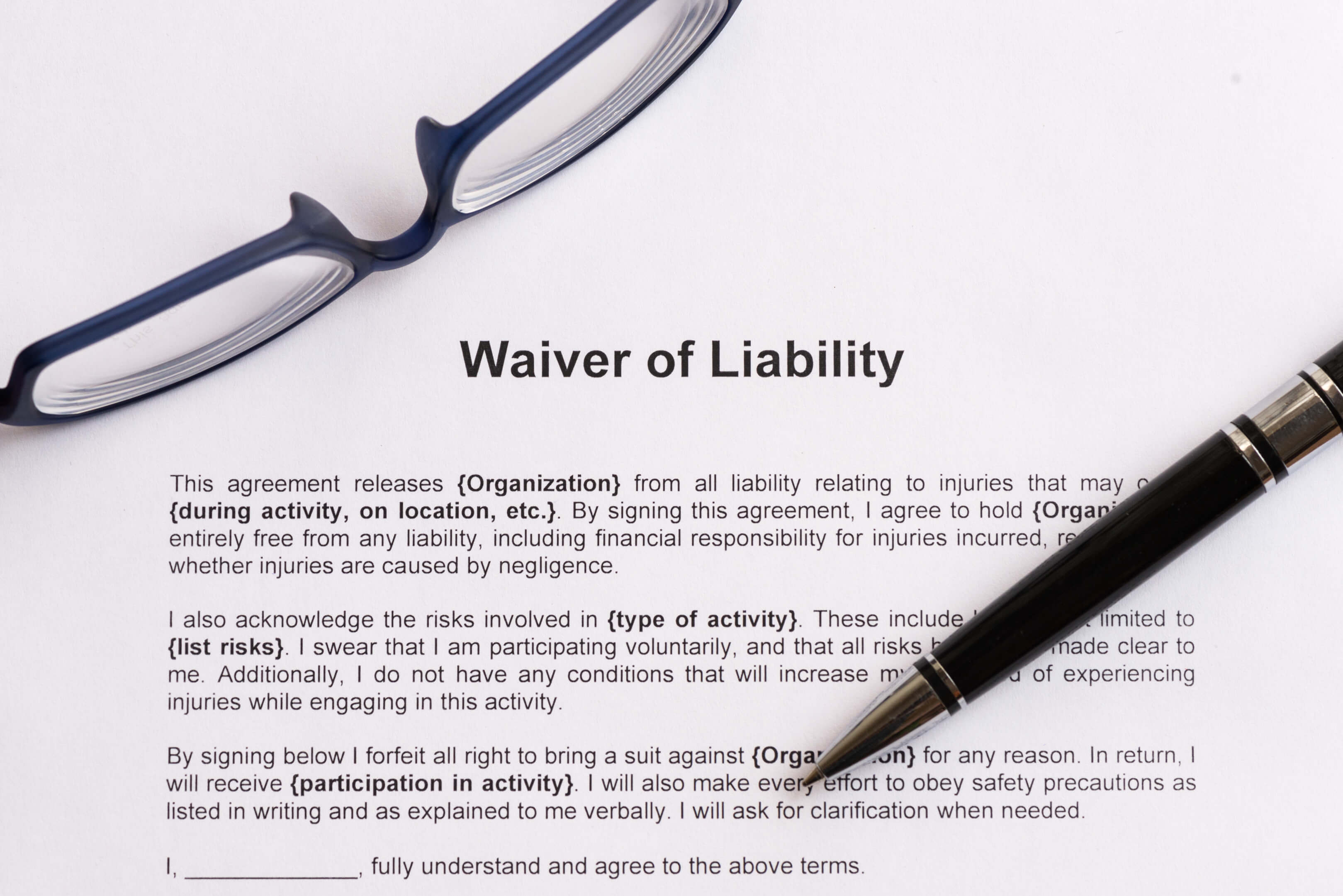When two parties enter a contract for goods or services, each party assumes certain obligations and responsibilities. The party that wishes to limit or eliminate those obligations and responsibilities may do so with a disclaimer contract. A contract waiver is a clause in the language of a contract that sets the stock market parameters. Contract waivers are designed to prevent one party from suing the other if things do not go according to plan.
Contract Withdrawals, like all waivers, are written to protect one of the parties from an unwanted result. Signs that advise visitors to “enter at their own risk” or warnings that “management is not responsible for losses” are examples of general disclaimers. A waiver contract is similar in spirit, but different, since it exists in a deed shared between the parties that have negotiated the terms.

There is no joint language that a disclaimer contract should contain, and the detection of a waiver of the contract is not always easy. Languages such as “as are” in a sales contract is a disclaimer, as it protects the seller from allegations that the product turned out to be defective. A declaration of limitation of the monetary amount that a party can recover in case of injury or defect of the product is also a disclaimer of contractual liability since it establishes a limit to a party’s obligation to pay if something goes wrong.

Contract waivers are easy to put on contracts, but if a disclaimer is enforceable, they can not be answered without consulting the regional contracts’ laws. In the United States, the Uniform Commercial Code (UCC) establishes guidelines for contract waivers, including the requirement that waivers of contracts in consumer sales agreements be established “visibly.” Almost every state in the United States has adopted the UCC in some form. In other countries, national contract rules address waivers. The United Nations Convention on Contracts for the International Sale of Goods, which applies to contracts for the sale of merchandise internationally, also has rules governing contract waivers.
Some of the most difficult things to decline successfully in contracts are guarantees – contractual assumptions, well-articulated or implicit, about the quality of the contract guarantees’ goods or services. Explicit warranties are statements that a party makes affirmatively about a product, such as the average miles of a car per gallon, the expected performance of a given product, or a specific description of what a product will look like. A party can not deny this kind of guarantees generally.

Implicit guarantees, on the other hand, can sometimes be denied. Implicit guarantees are assumptions or tacit promises about a good or service. The implied warranties that automatically connect to the contracts include the implied warranty of merchantability, which is the assumption that the goods sold are, at least, the quality average, and the implied warranty of fitness for a particular purpose, which assumes that a product sold for a specific use is the most suitable for that use. The UCC establishes certain circumstances and ways in which the implied warranties may be denied, but, still, the applicability of any liability waiver depends on how local laws interpret and apply the provisions of the UCC.
Waivers can be a great way for contracting parties to protect themselves and their assets. The best way to ensure that a waiver contract is enforceable and effective is to consult a lawyer familiar with local law. The fact that a contract contains a waiver does not necessarily mean that nothing has been legally denied.
Contract waivers are meant to protect one or both parties entering into a contract and help both parties avoid litigation issues. These waivers are part of contracts for business goods or services and can protect both the business and the customer.
 About Complete Controller® – America’s Bookkeeping Experts Complete Controller is the Nation’s Leader in virtual bookkeeping, providing service to businesses and households alike. Utilizing Complete Controller’s technology, clients gain access to a cloud-hosted desktop where their entire team and tax accountant may access the QuickBooks™️ file, critical financial documents, and back-office tools in an efficient and secure environment. Complete Controller’s team of certified US-based accounting professionals provide bookkeeping, record storage, performance reporting, and controller services including training, cash-flow management, budgeting and forecasting, process and controls advisement, and bill-pay. With flat-rate service plans, Complete Controller is the most cost-effective expert accounting solution for business, family-office, trusts, and households of any size or complexity.
About Complete Controller® – America’s Bookkeeping Experts Complete Controller is the Nation’s Leader in virtual bookkeeping, providing service to businesses and households alike. Utilizing Complete Controller’s technology, clients gain access to a cloud-hosted desktop where their entire team and tax accountant may access the QuickBooks™️ file, critical financial documents, and back-office tools in an efficient and secure environment. Complete Controller’s team of certified US-based accounting professionals provide bookkeeping, record storage, performance reporting, and controller services including training, cash-flow management, budgeting and forecasting, process and controls advisement, and bill-pay. With flat-rate service plans, Complete Controller is the most cost-effective expert accounting solution for business, family-office, trusts, and households of any size or complexity.




